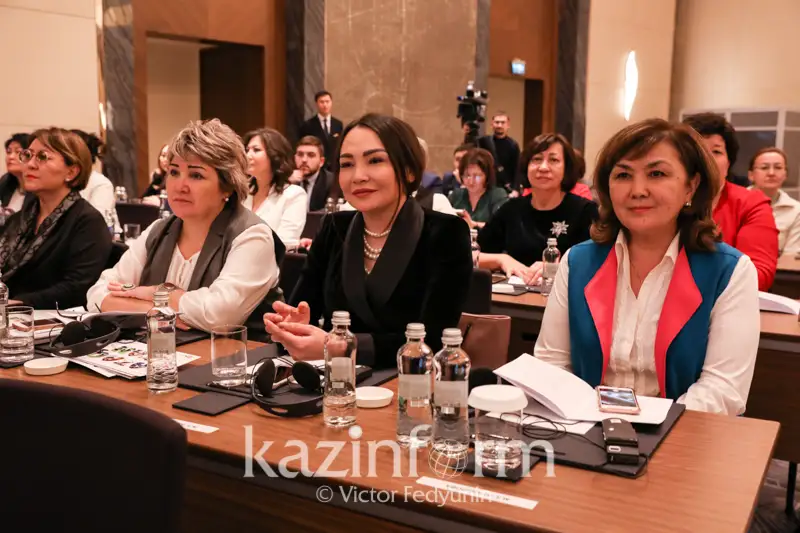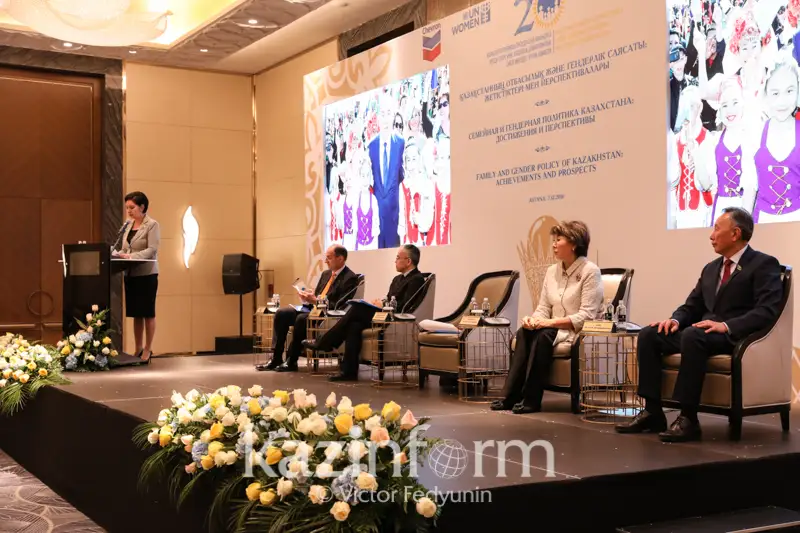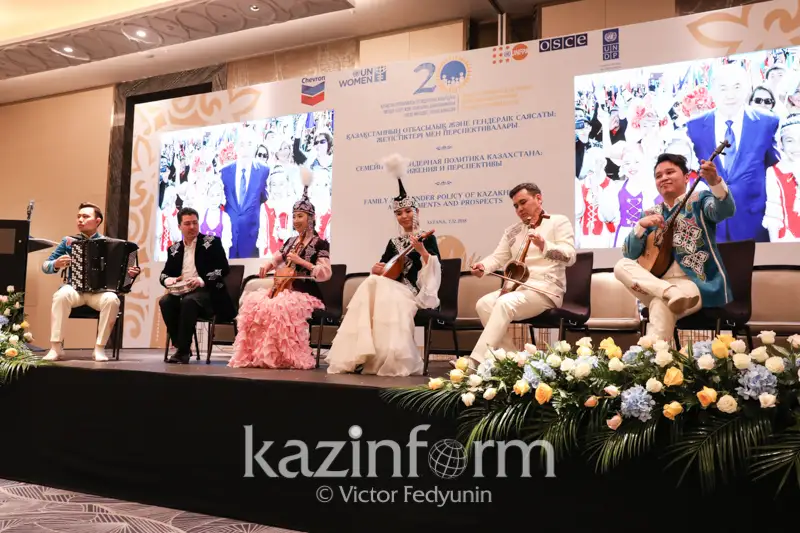Kazakhstan Secretary of State summarizes results of women’s, children’s rights protection activities

"The first is that the legislative institutional framework has been created. In 1995, Kazakhstan signed the Beijing Declaration and Platform for Action on women's empowerment. Then fundamental initiatives and documents were ratified. In 1998, the country acceded to the Convention on the Elimination of All Forms of Discrimination against Women, and in 2015, to the UN Declaration ‘Transforming our World: the 2030 Agenda for Sustainable Development'. We have implemented the Gender Equality Strategy, adopted gender-sensitive laws ‘On Government Guarantees of Equal Rights and Equal Opportunities for Men and Women', ‘On Domestic Violence Prevention'. The 2030 Family and Gender Policy Concept is being implemented in Kazakhstan. Those accountable for the implementation of gender policy have been designated in all agencies. The Committee on Youth and Family has been recently established. Regional commissions for women's affairs work locally," the Secretary of State told the International Conference on the domestic violence prevention through effective cooperation.
Secondly, according to Ms. Abdykalikova, Kazakhstan has taken measures to promote women. In particular, progress was made in women's representation in politics.
"Presently, 34 parliamentarians, or 22 percent of the total number of MPs, are women, whereas, according to the results of the 2011 election there were 29 [women] or 19 percent. The share of women in the Maslikhats (local representative bodies) of all levels is also 22 pct, and in Kostanay region, it exceeds 30 pct. The representation of women in political parties ranges from 33 to 57 percent. About 55 pct of women work in civil service, and more than 10 pct among political officials. Non-governmental organizations play a big part in the social and political life. In Kazakhstan, around 300 NGOs are actively involved in women's empowerment issues. Among them, I would like to mention the Union of Women Entrepreneurs, the Association of Business Women, the Council of Business Women, to name but a few," the Secretary of State informed.
As the third achievement, Gulshara Abdykalikova named the expansion of women's economic opportunities and the creation of the conditions needed for the development of women's entrepreneurship.
"Over 500,000 SME companies are headed by women. They have created a third of all jobs. Women's business is being developed through government programs, programs of international financial institutions. For instance, more than 12,000 projects, of which 30 percent are women's entrepreneurship entities, have been subsidized as part of the 2020 Business Roadmap. Since 2010, the Damu Fund has been implementing a microcredit program for women's entrepreneurship. 1,500 borrowers have been financed for a total of KZT 14 billion. In line with the Agreement between the Government and the European Bank for Reconstruction and Development, the Woman in Business Program is under implementation. Loans totaling KZT 17 billion have been provided to over 12,000 SMEs. In general, the measures to expand productive employment opportunities for women have reduced women's unemployment rate to 5.6 percent. Kazakhstan also 31st in the Davos Forum [World Economic Forum] rankings in terms of creating conditions for business and the economy," she mentioned.
Fourthly, as the head of the Commission underscored, Kazakhstan managed to achieve good results in the field of social support for women.
"A comprehensive system of social assistance for women and families with children has been built in Kazakhstan. Since 2003, there has been a one-time childbirth allowance. And since 2006, all families have been paid childcare allowances for children under the age of one," she reminded.
In addition, the Secretary of State elaborated on the efforts to strengthen the movement for the health of women and children.
"Fifth. One of the healthcare priorities is the protection of motherhood and childhood. Over the past 20 years, the maternal and infant mortality rates have declined 6 and 2.7 times, respectively. The life expectancy has increased 8.45 times, reaching almost 73 years. Particular attention is given to the reproductive health of the population. One of the areas is family planning and infertility treatment," she added.
According to Abdykalikova, domestic violence prevention has been enhanced.
"Sixth. Thanks to the joint efforts of government agencies and NGOs, confronting violence against women and children has become one of the main directions of the public policy. The legislation on adding greater punitive measures as to crimes against women and children is improving. There are 136 special units working to protect women from violence," she said.
Finally, Gulshara Abdykalikova named the systemic strengthening of the spiritual and moral sphere as the seventh aspect.
"The core of the ongoing transformations is the renovation of public consciousness, which is carried out in the furtherance of the ‘Rukhani Janghyru' Program and to implement the priorities of the ‘Seven Facets of the Great Steppe'. Family traditions are also one of the main segments of spiritual modernization. The Head of State made the most crucial decisions: Day of Family has been established, the national competition "Mereili Otbasy'(‘Happy Family') takes place annually, the institution of the Commissioner for the Rights of the Child has been introduced. Year after year, the role of parenting is strengthened. (...) Family education centers have been opened in the regions," Kazakhstan Secretary of State concluded.


